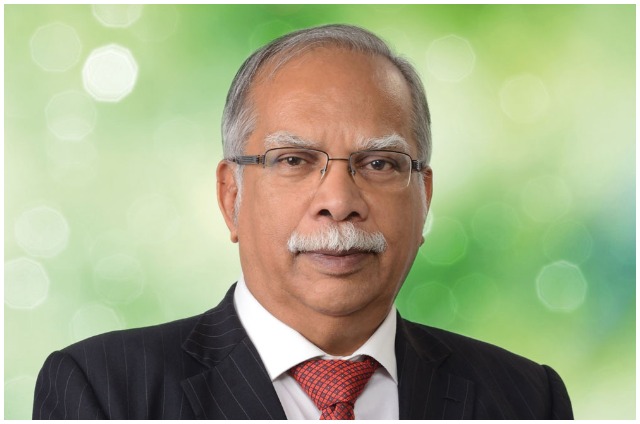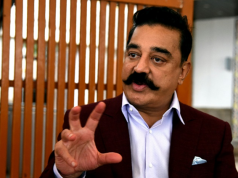 COMMENT BY YB PROF P.RAMASAMY, DEPUTY CHIEF MINISTER II PENANG
COMMENT BY YB PROF P.RAMASAMY, DEPUTY CHIEF MINISTER II PENANG
Fear of Malay enrolment in vernacular schools
I have very strange and uneasy feeling that the attempt to file a court case by the three Malay organisations to stop the operation of vernacular schools might have nothing to with the stated reasons.
They are that students in these schools lack proficiency in Malay, the existence of these schools stand in the way of national unity, and even constitute the source of racial polarisation.
I believe that the real reason is basic intolerance towards the vernacular schools not because they are an aberrant to the national education system, but because they have not only survived but have performed admirably in comparison with the national schools that cater for the majoritarian interests.
If more and more Chinese and Indian students are being admitted to the vernacular schools, the problem is not with them but the national schools.
The Malay political elite might think and act as though these vernacular schools are against national interest by having education in their respective mother tongue.
But the ordinary Malays might not share the same attitude with their political elite.
Ordinary Malays are rational people who do not have an antagonistic attitude towards the existence of the vernacular schools.
I understand that nearly 30 percent of the enrolment in the Chinese vernacular schools are Malays.
Despite the constant political rhetoric against vernacular schools, ordinary Malays think that the system of education in vernacular schools are superior to the national schools.
The overall enrolment of students in the Chinese and Tamil vernacular schools have increased over the years.
Even a small percentage of Malay parents are sending their children to Tamil schools.
My Malay driver sends his daughter to a Chinese primary school in Penang.
In a casual conversation, I asked him why he preferred Chinese school and not national school.
His reply was simple and straightforward: I want my daughter to have a good future.
By going to a Chinese school she would become proficient in Mandarin with better job prospects.
I was a bit stunned, I did not expect such a rational reply from my driver.
Just like my driver, ordinary Malays are no fools, they know the value of a good system of education.
Unmistakably, the vernacular schools are in the top form in the country.
The majority of Chinese and Indian parents send their children to these vernacular schools simply for them to get good education.
There is nothing political about it.
Unfortunately, national schools have lost the pride and honour of yester years.
They have become victims of machinations of politicians and religious zealots especially those in PAS.
It is not that national schools cannot be improved but there is no political will. It is just an arena for politicisation.
Years back I argued that the mother tongue education should have been made compulsory in national schools.
If this had been done, the fervour of vernacular schools might have diminished to some extent.
It is great tragedy that mother tongue education is given the lowest priority by the schools.
The whole idea is to kill it. Non-Malay parents might send their children to national schools but complain that mother tongue education or the pupils own language programme (POL) is hardly given importance in the curriculum.
Then why complain that non-Malay parents are sending their children to vernacular schools. Even the alternative of POL classes are marginalised in the school curriculum.
Racism and religious extremism are other reasons why more and more non-Malays prefer to send their children to vernacular schools.
Even if the duration is only for six years, it is regarded as sufficient for the children to be schooled in their mother tongue.
It is not the language of instruction but also to reinforce the cultural aspects of identity.
Malay nationalists might harp on Malay as the only medium of instruction and hence the irrelevance of the vernacular schools.
But some sections of the Malay elite do not believe in their own system of education but prefer to send their children overseas for education.
How to explain this blatant hypocrisy!
While Malay is the medium of instruction in most public universities, but some are exempted from this.
For instance, the International Islamic University and MARA University of Technology are exempted from compliance to the ruling on the use of Malay as the language of instruction.
They might have good reasons just like the vernacular schools but why complain about the latter and not the former.
The mushrooming of private and expensive international schools might cater for the presence of expatriates in the country. But the rich including politicians send their children to these schools.
Don’t they have confidence in their own system of national schools with Malay as the medium of instruction?
It is not that the vernacular schools are against unity or lack the proficiency in Malay.
The present opposition to the existence of these schools stems from the desire to stem the popularity of the schools.
The increasing enrolment of Malays in Chinese schools is proving worrisome to the politicians who believe in divide and rule.
They just cannot accept the idea that ordinary Malays might want to prefer vernacular to national schools.










